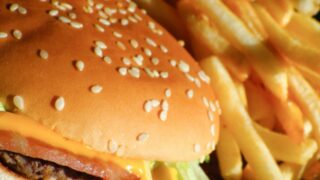Have you ever been on a diet and suddenly stopped losing weight?
In this article, we will discuss stagnation and how to overcome it for those who are suffering from weight stagnation. Dieting is not a short-distance race, so don’t be in a hurry to overcome the stagnation period.
What is the weight stagnation period?

Stagnation is a period of time when weight loss suddenly becomes difficult while you were steadily losing weight on a diet. Although this may cause anxiety, this is not a sign that the diet is failing, but rather that it is progressing well. Stagnation is a natural phenomenon and a normal reaction of the body. It comes to everyone.
Our body has a function called “homeostasis” that maintains the body in a certain state. Sweating when it is hot or shivering when it is cold is the body’s homeostasis working to maintain a constant body temperature.Therefore, when calorie intake is reduced by dieting and weight loss occurs, this homeostasis is activated. The body then judges that it is in a state of starvation and switches to an energy-saving mode in order to maintain the body with fewer calories.
How long does it last?
The time to enter a period of stagnation varies from person to person, but if you lose about 5% of your body weight in the first month of dieting, homeostasis kicks in and you are more likely to enter a period of stagnation.
For some it lasts only a couple of weeks, while for others it may last a month or two or more.
Countermeasures

Now, let’s prepare a countermeasure for when the stagnation period arrives.
Never give up on your diet
This is the most important thing. Right now, you are in the process of working toward your goal weight. Think of the stagnation period as a short break in dieting, and keep your motivation up by imagining a future where you have lost weight.
Try changing your diet
Because caloric intake is reduced during dieting, nutritional balance is easily disrupted. If you eat too little, you will lose muscle along with fat, so protein intake is important.Let’s take a look at whether you are getting enough protein, vitamins, and minerals.
Here is what you should not do. That is to eat less than you do now.By further decreasing calorie intake, the body accelerates starvation, resulting in a prolonged period of stagnation.Even if the diet was going well, if the stagnation period is prolonged, the body will start to binge eat and drink, and may rebound.
Varying Your Exercise
Many dieters not only adjust their food intake, but also incorporate exercise into their diets. If you continue muscle training with the same exercise and the same load, your body will become accustomed to that exercise and it will be difficult for your body to change.
Therefore, try changing the type of exercise, the load, or the part of the body to be trained. Since different muscles are stimulated, it will be easier to increase basal metabolism.
Do a cheat day
A cheat day is a day when you increase your calorie intake.By incorporating a cheat day, you make your brain think that you are about to receive a lot of nutrition. By making your body believe that it is not starving, you will get out of the stagnation phase. Cheat days increase calorie intake, which can boost a sluggish metabolism and also relieve you from the stress of eating.
The standard calorie intake for a cheat day is said to be “basal metabolic rate x 3,” and that calorie intake is divided into three meals. If you are stressed out by your daily diet, eat what you like here and release the stress once. For a more effective cheat day, we recommend eating meals that are high in protein and carbohydrates rather than fatty foods.
Refer to the following for the frequency of cheat days.
| Male (% body fat) | Female (% body fat) | Frequency of cheat days |
| 15% to 20% | 25% to 30% | Once every two weeks |
| 10% to 15% | 20% to 25% | Once every 10 days |
| 10% or less | 20% or less | Once every week |
Here is one key point about doing cheat days. Cheat days are based on the premise that you have reached a period of stagnation. If you are slowly adjusting your diet, it is unlikely that your body will starve. If you do a cheat day when you are not in a period of stagnation, you will simply be overdosing on calories. Also, if you are steadily losing weight and body fat, cheat days are not necessary.











